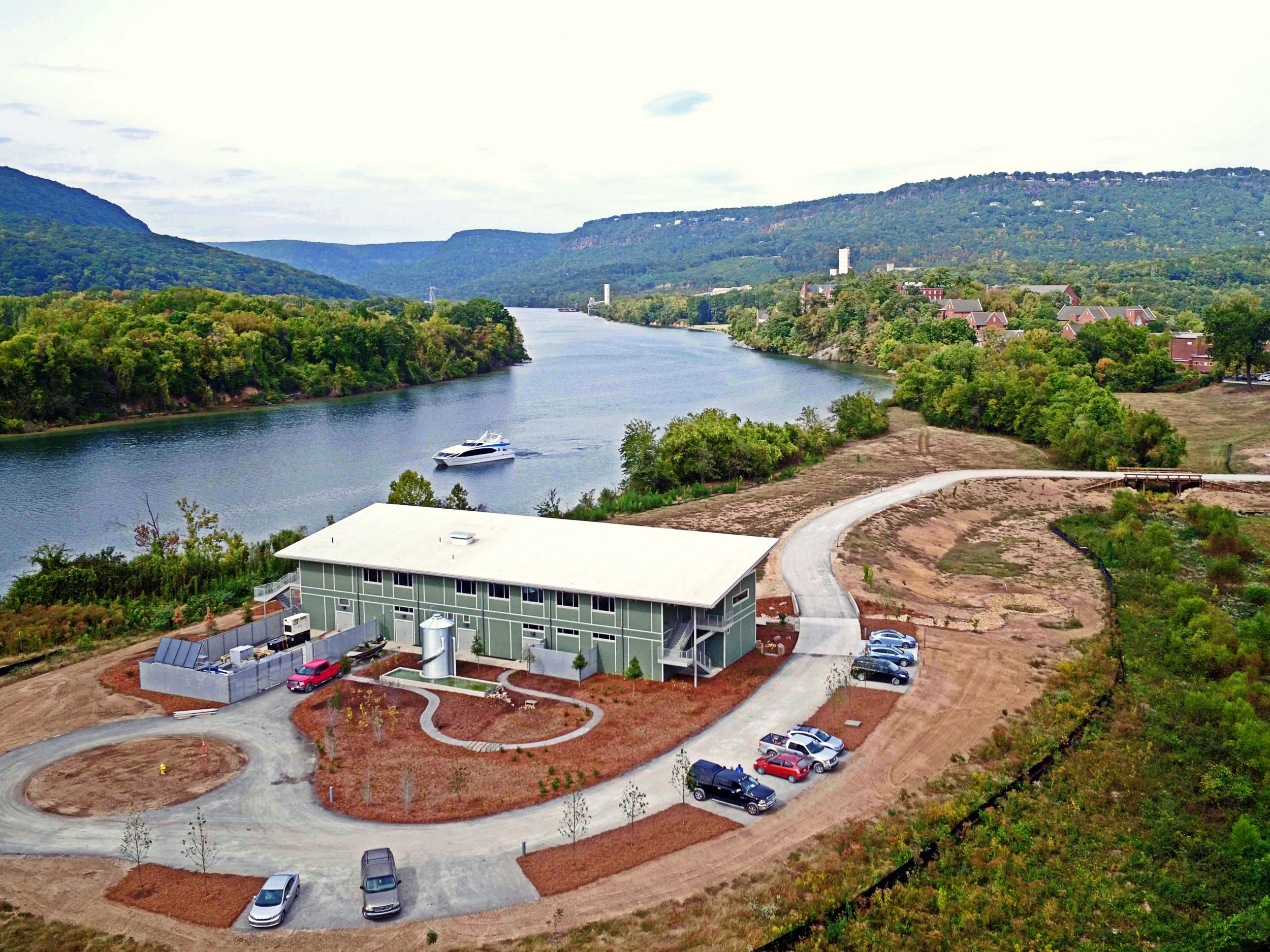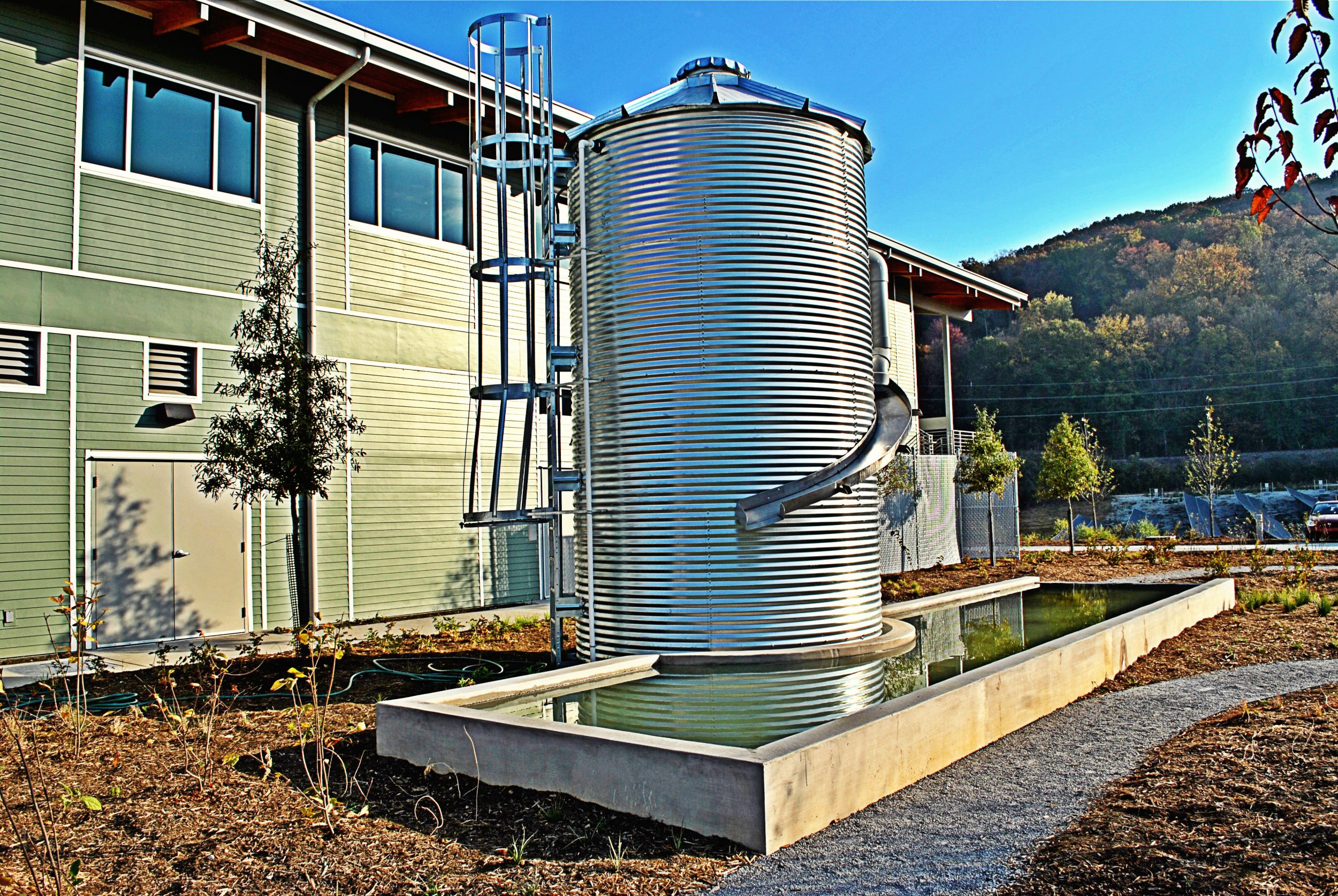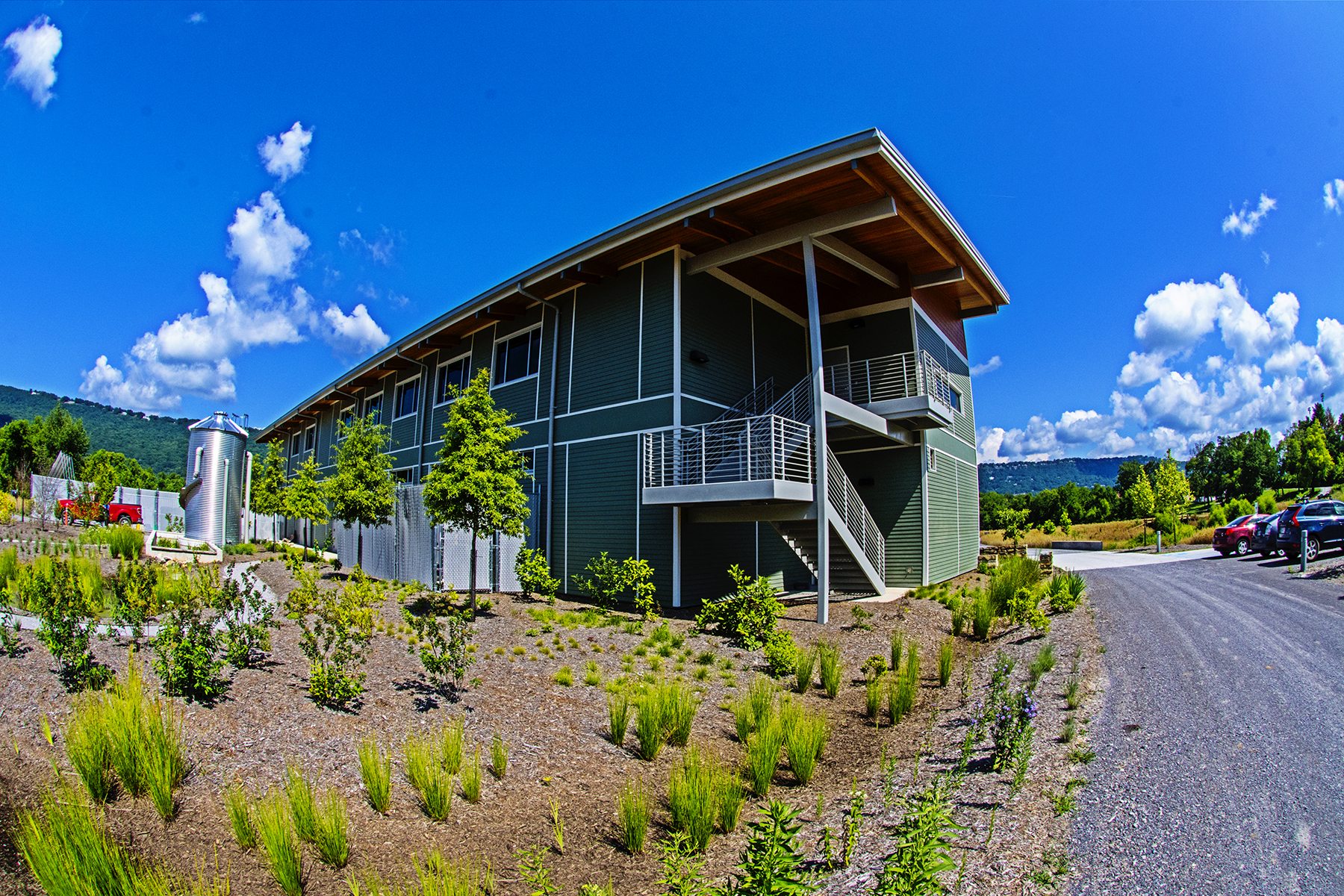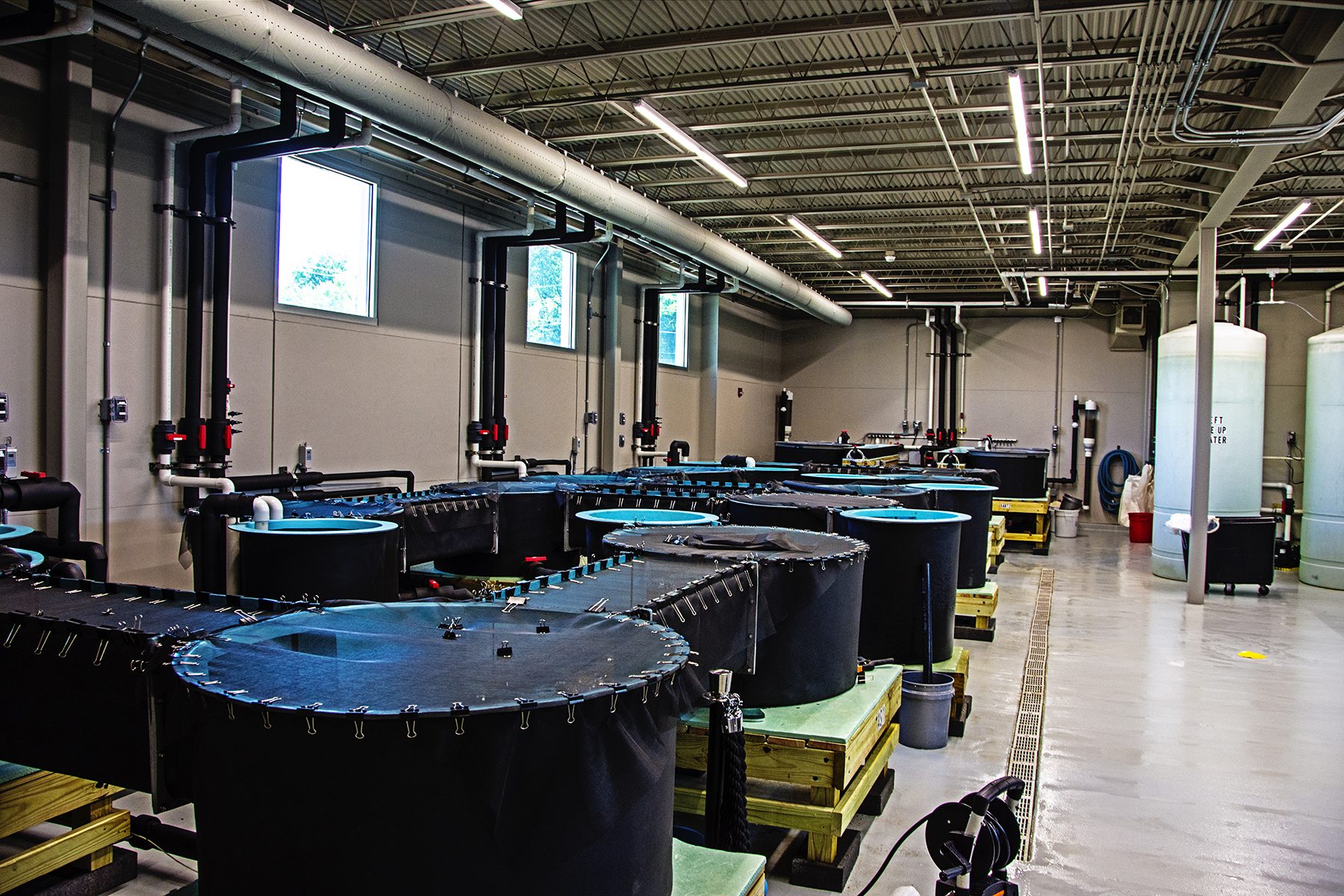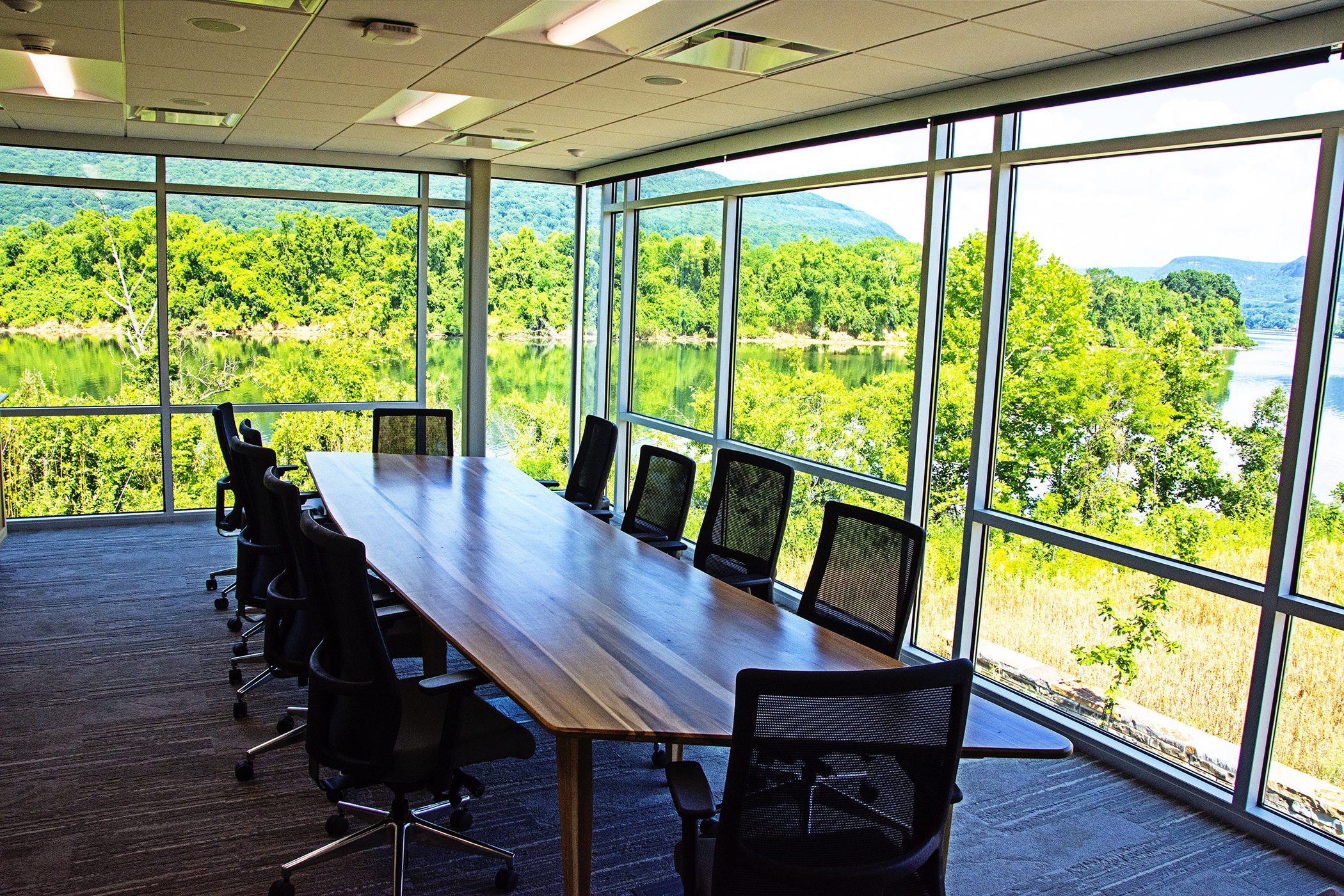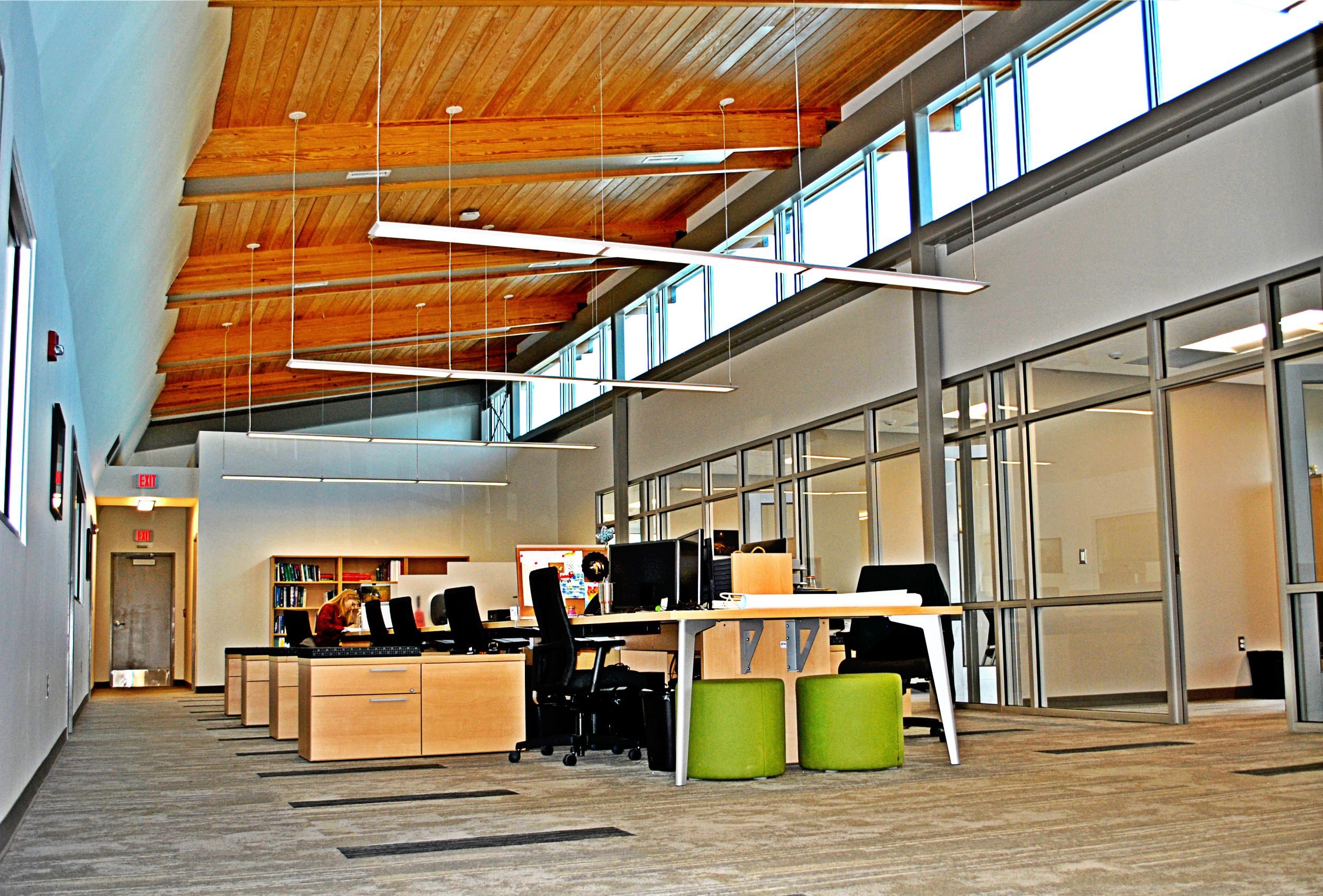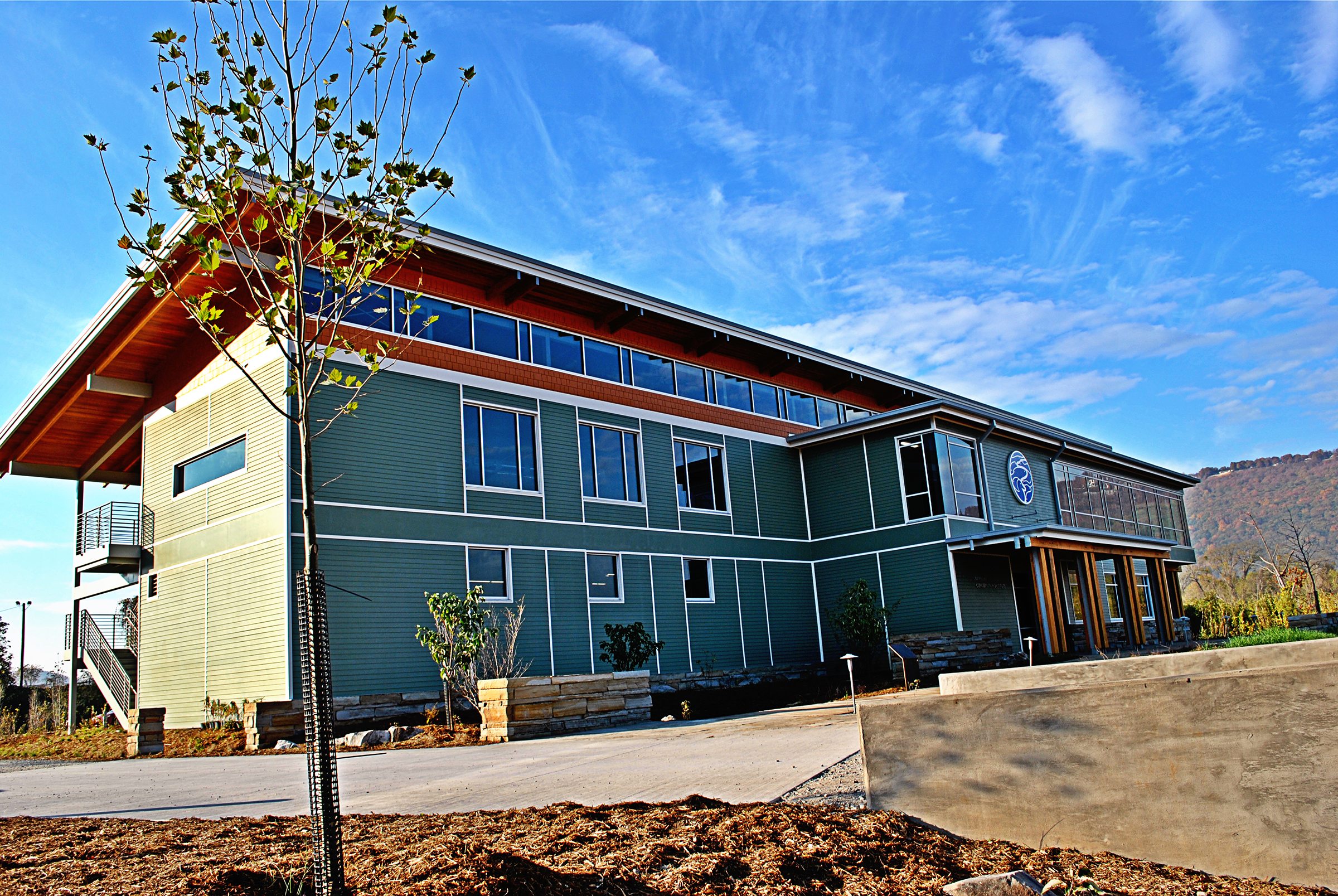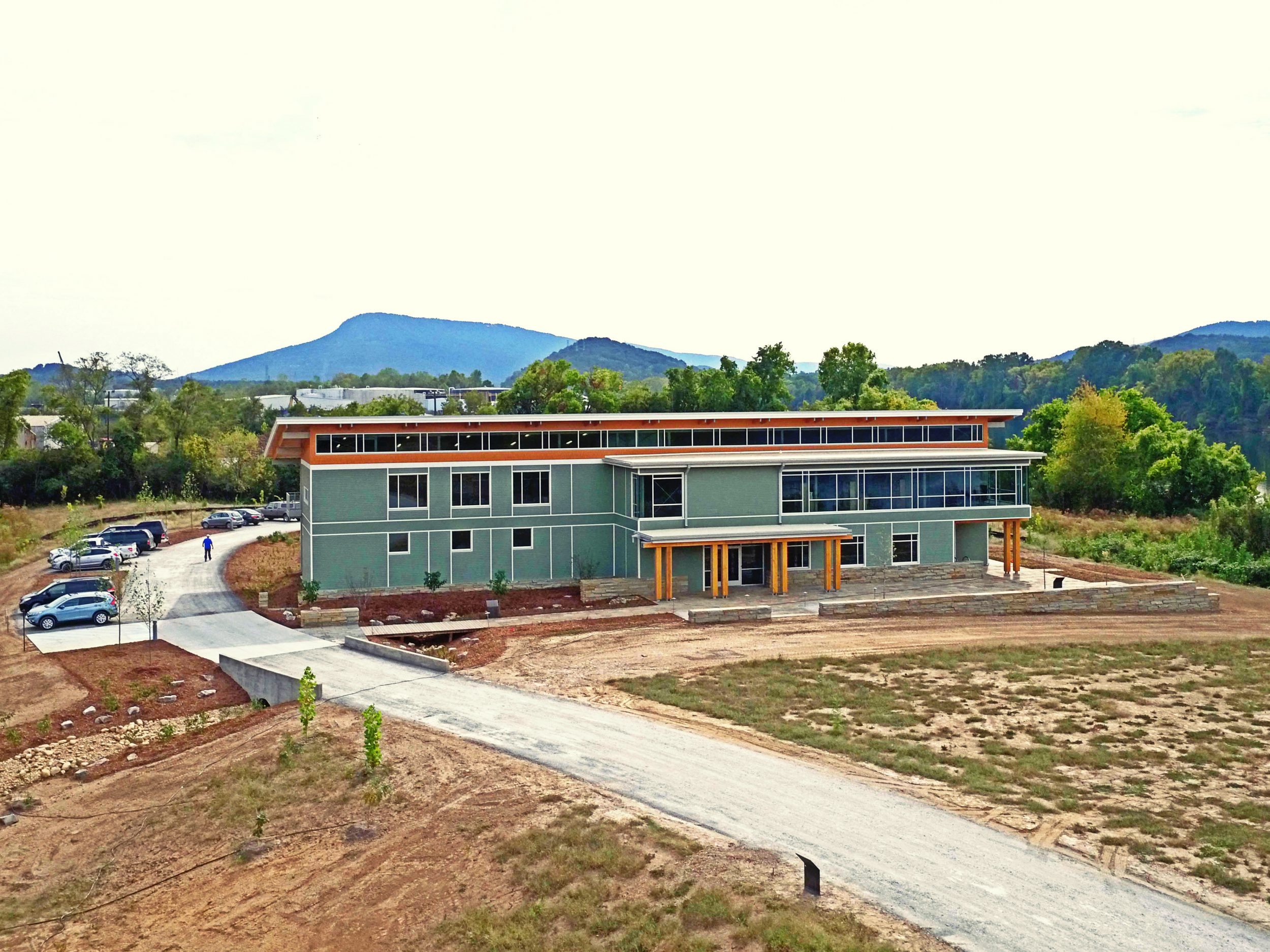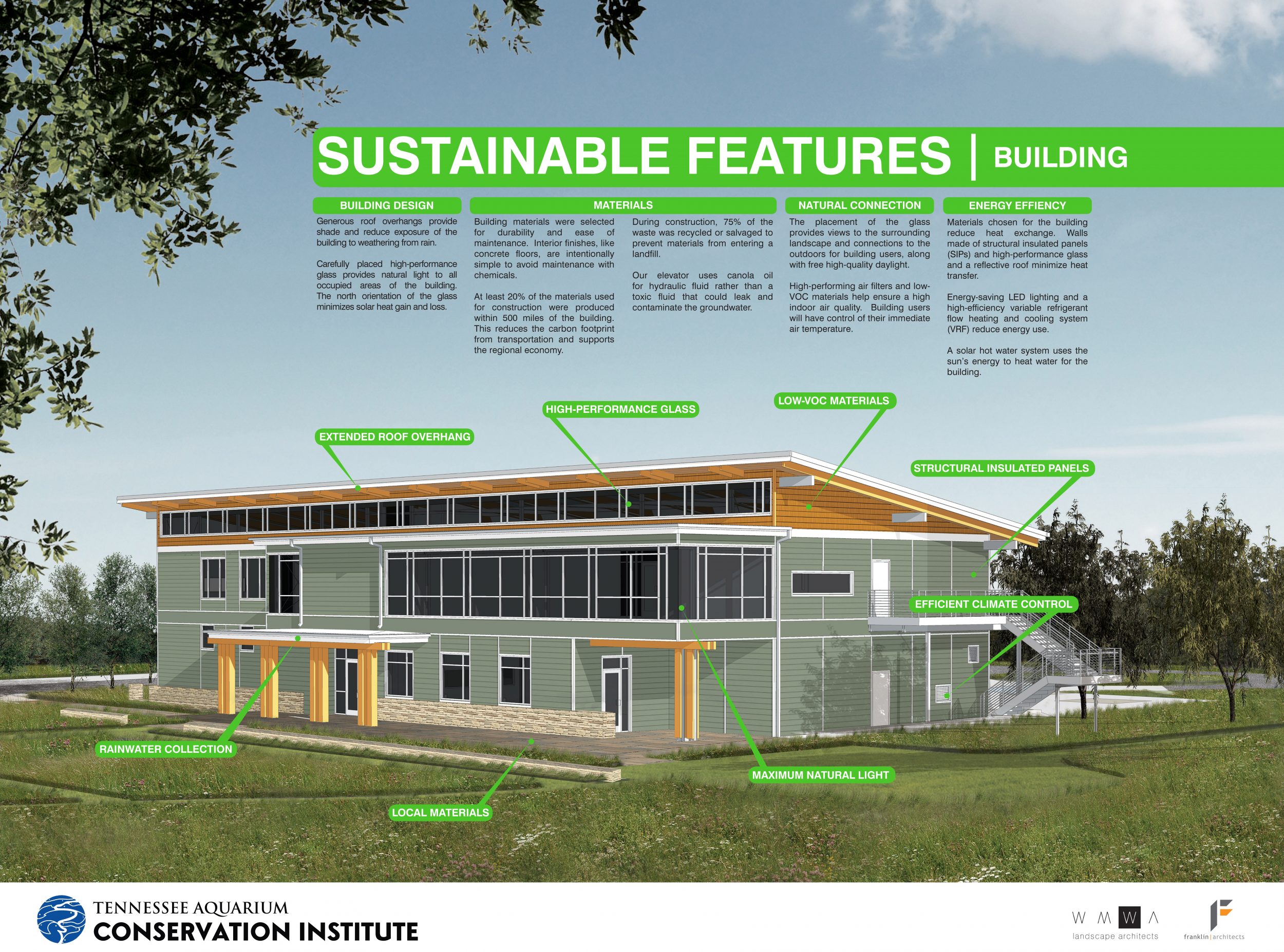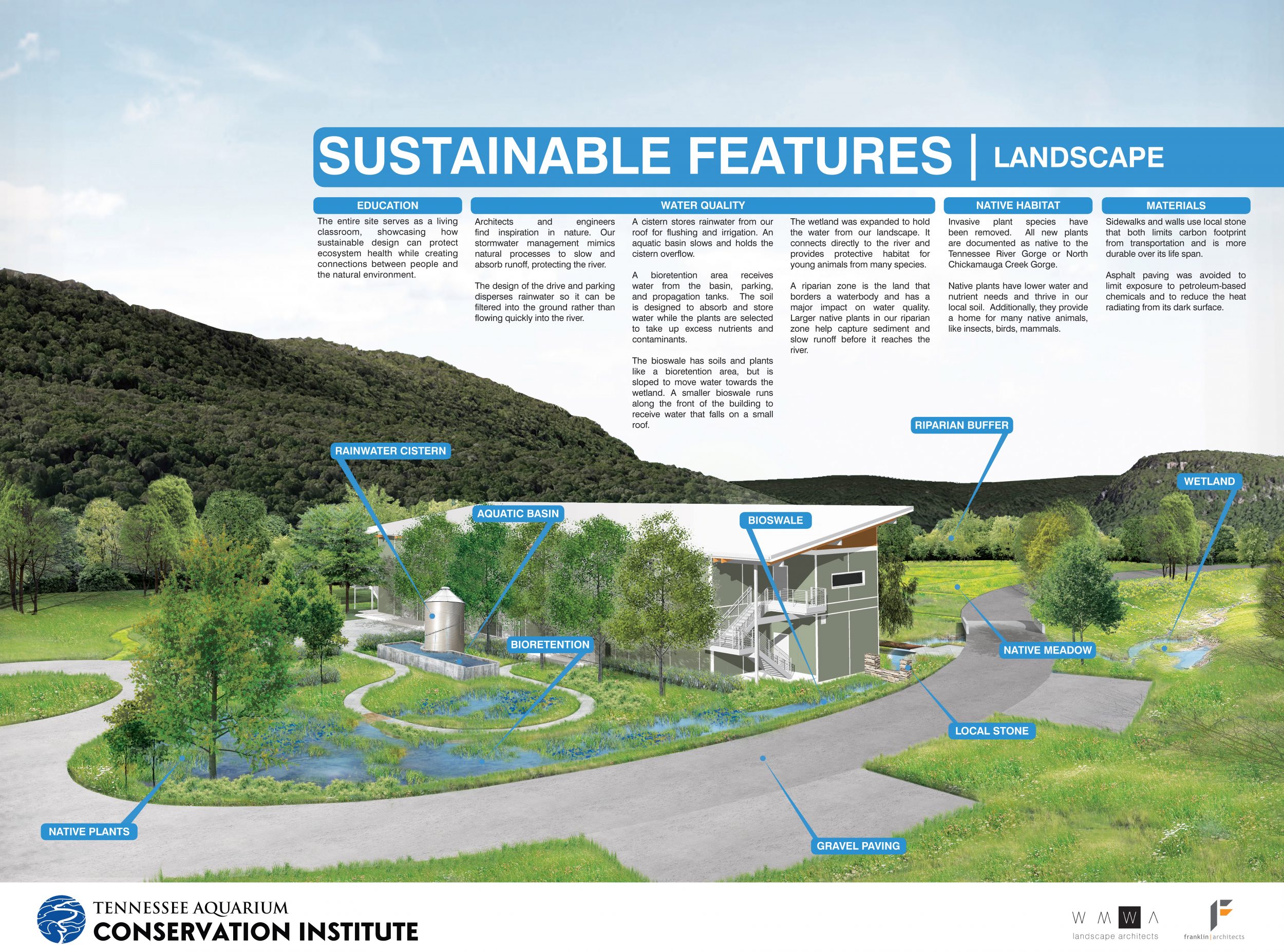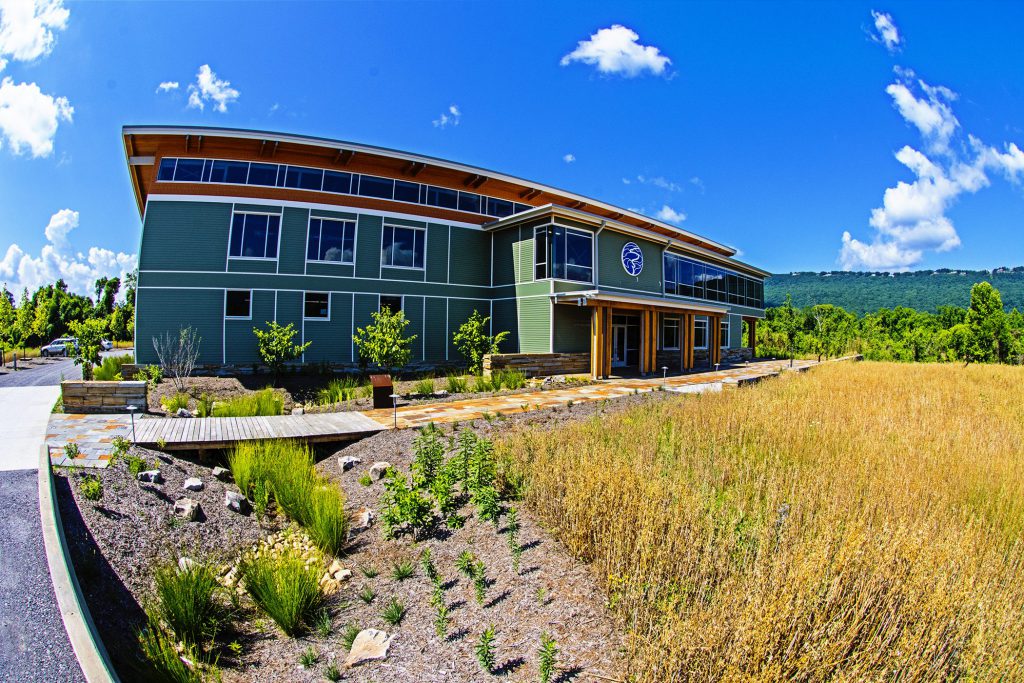
The client’s value is our value
The purpose of the Tennessee Aquarium Conservation Institute (TNACI) is to provide a central location for researchers across the Southeast to bolster the mission of restoring the region’s natural ecosystems and educating the public on conservation.
During a client value meeting prior to the start of construction, TNACI’s leadership shared that their chief goal of the project was environmental sustainability—to preserve the ecosystem when building and maintaining the facility.
Taking this into account, EMJ’s preconstruction team noticed that plans included a concrete bridge for trucks, supplies and laborer access over a patch of wetlands, which had the potential to cause irreversible damage to the ecosystem.
The project team researched environmentally sustainable bridges, discovered that a wooden bridge would be the least impactful on the ecosystem, and proposed the change to TNACI.
As a result, the team constructed a timber bridge with no impact to the wetlands—while also replacing a constricting culvert, allowing both water and aquatic species to flow naturally through the site.
UNIQUE VALUE
The client was “ecstatic” with our team’s focus on environmentally conscious solutions throughout construction.
The Tennessee Aquarium Conservation Institute (TNACI) is a freshwater research center on the banks of the Tennessee River. Designed to meet LEED Gold standards, the facility is constructed with structural insulated panels (SIPs), a highly sustainable, energy efficient wall system, and includes numerous environmentally conscious design elements, such as an elevator powered by canola oil. In addition to the facility’s sustainable structure, the site includes bio-retention and wetland preservation features and is designed to restore the land back to its natural origins, utilize rainwater retention and protect wildlife.
The client’s value is our value
The purpose of the Tennessee Aquarium Conservation Institute (TNACI) is to provide a central location for researchers across the Southeast to bolster the mission of restoring the region’s natural ecosystems and educating the public on conservation.
During a client value meeting prior to the start of construction, TNACI’s leadership shared that their chief goal of the project was environmental sustainability—to preserve the ecosystem when building and maintaining the facility.
Taking this into account, EMJ’s preconstruction team noticed that plans included a concrete bridge for trucks, supplies and laborer access over a patch of wetlands, which had the potential to cause irreversible damage to the ecosystem.
The project team researched environmentally sustainable bridges, discovered that a wooden bridge would be the least impactful on the ecosystem, and proposed the change to TNACI.
As a result, the team constructed a timber bridge with no impact to the wetlands—while also replacing a constricting culvert, allowing both water and aquatic species to flow naturally through the site.
UNIQUE VALUE
The client was “ecstatic” with our team’s focus on environmentally conscious solutions throughout construction.
Project Photos
